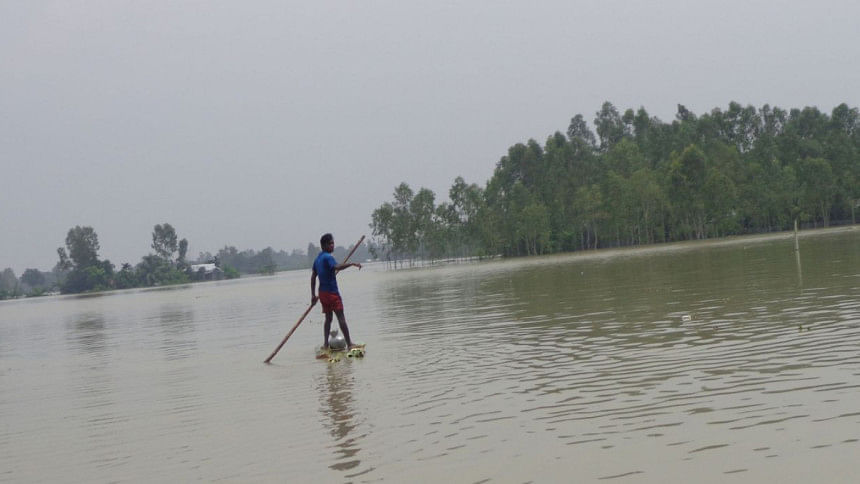Why Bangladesh needs more ambition

In the world of climate change negotiations, "loss and damage" is arguably one of the most debated issues. During COP23 last month, presided over by the island nation of Fiji—largely affected by climate change itself—the conversation on loss and damage gathered steam.
Although a universally accepted concept of loss and damage does not exist, the term can be defined as the negative effects of climate variability and climate change that people have not been able to cope with or adapt to. "Loss" refers to the complete loss of lives, species, etc, while "damage" is something that can be repaired (such as infrastructure). The main idea is that the countries that are most vulnerable to climate change are entitled to economic compensation from the polluter countries.
For a LDC (least developed country) like Bangladesh, climate change can pose serious pressure on the progress of development. Even though Bangladesh emits a small amount of carbon each year, it is one of the most climate-affected countries in the world. Each year we are slowly losing land to sea level rise. The increased intensity of natural disasters is becoming harder to handle and the impact of climate change is only getting worse.
In 2017 Bangladesh saw one of the biggest floods in its history. The number of tropical storms has also increased in the past years. In an opinion piece for the Climate & Development Knowledge Network, Dr Saleemul Huq wrote, "When residents in the coastal district of Satkhira in Bangladesh were asked a decade ago, only two percent said increased saline levels caused by sea level rise were having an adverse effect on crop yields, livelihoods and their health. Today, over 80 percent say they are affected." In this reality, it is imperative that we, as a country, rightfully demand support in order to face the adverse impact of climate change.
"Loss and damage" has a long history of being neglected. Only in 2010, the words "loss and damage" appeared for the first time in the negotiating text of COP16. Progress was made when in Warsaw COP19, loss and damage was fully institutionalised into the UNFCCC through the Warsaw International Mechanism on Loss and Damage (WIM).
However, progress since then has been slow. Even though "loss and damage" was mentioned in Article 8 of the Paris Agreement, there is no provision for financial compensation. In 2016, the countries decided to work on a five-year-plan to address the slow onset impacts and migration. The financial part however remained elusive.
At COP23, the discussion on loss and damage has been heated. The donor countries—and even countries that are typically in favour of climate change negotiations—are very uninterested in talking about loss and damage. Australia and the European Union were against including financial discussions in the negotiations of COP23, saying that there is "insufficient statistical evidence" that extreme weather events such as typhoons are singularly caused by climate change. Switzerland and the US are also strongly opposed to discussions on loss and damage.
But for countries like Bangladesh, the issue of loss and damage is an all-important one. Compensation from loss and damage can go a long way in financing the fight against climate change. In order to achieve that we need to focus on scientific research that will support our demands on a global level. Technological support is just as important as financial support for countries like Bangladesh—and it's also as important as talking about compensation.
Luckily, there is solidarity regarding loss and damage among major parties of climate change negotiations. The LDCs and Alliance of Small Island States (AOSIS) are advocating for loss and damage to be a separate agenda of its own, with the WIM being a permanent body within the convention. The "G77 plus China" group has also adopted the same position as them. They are also advocating for the introduction of innovative forms of finance to fund loss and damage.
Bangladesh is known all over the world as a leader of climate change negotiations. Thus, Bangladesh—both the government and civil society alike—needs to raise its voice on this issue and demand its rights to support its efforts in combating climate change.
Lam-ya Mostaque is a researcher working in the development sector.





Comments